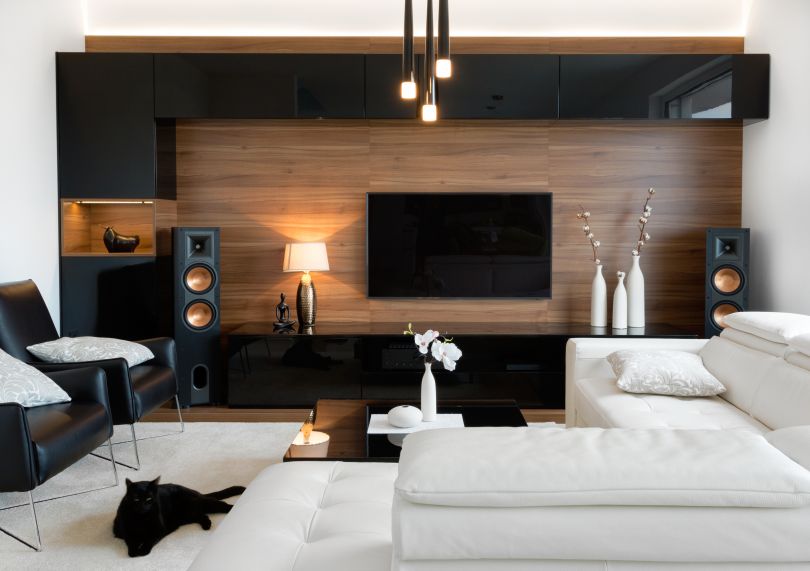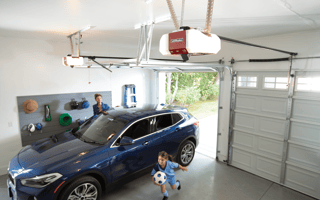One of the world’s biggest garage-door opener companies has aspirations of being a leader in the smart home space.
Chamberlain Group dominates the industry, with two of its brands, LiftMaster and Chamberlain, accounting for 65 percent of all garage-door openers installed in new homes. While the company is a force to be reckoned with in the garage, it’s a different story inside the home, specifically when it comes to smart devices.
The company launched an internet-connected garage-door opener in 2011, and has remained active in the smart home space ever since, releasing new products under its myQ brand and acquiring startups like Lockitron (smart locks) and Tend (smart security cameras). At the same time, the smart home industry has boomed thanks to tech giants like Amazon, Google and Apple getting into the space.
Today, everything from vacuums to microwaves and light bulbs are connected to the internet and accepting voice commands, and it’s estimated the smart home industry will be worth $157 billion by 2023.
Wait, just how smart are light bulbs?
- According to The Telegraph, smart light bulbs date back to the 2012 launch of Philips’ Hue, which could change color and were controlled by an app.
- In 2015 the Hue line added support for Apple HomeKit, giving consumers the ability to control their lights using voice commands.
- At CES 2018 Philips announced “Hue Entertainment,” which syncs the smart lights to televisions and computers to match the colors displayed on screen.
- Today, the Hue line includes smart floor and desk lamps, outdoor pathway lighting and bathroom lighting fixtures.
While there are more internet-connected devices than ever, none of them are designed to talk to each other, which means consumers either need to remain brand-loyal or get comfortable working out of multiple apps and juggling conversations with Alexa, Google and Siri. Gani Nayak, CTO and EVP of engineering at Chamberlain Group, sees this fragmentation as an opportunity for his company to expand its presence beyond the garage and into the home.
“We have built this cloud infrastructure and IoT capability and are evolving from being just a garage-door opener company,” said Nayak.

The One App (That Could) Control Them All
Chamberlain Group’s myQ line of smart products include garage-door openers, lights and security cameras. All of these devices are connected via the myQ app, which also integrates with Apple HomeKit, Xfinity Home and Google Assistant. In addition to being able to say, “OK, Google, close the garage door,” these integrations give homeowners the ability to manage all their smart devices in one place.
Along with integrating into existing smart home systems, Chamberlain Group has partnered with Amazon Key, which gives homeowners the ability to have packages delivered to their garages, and STEER Tech, a startup that builds aftermarket autonomous parking technology. The partnership connects a homeowner’s smart garage door opener with their newly intelligent cars. That communication is designed to ensure autonomous cars don’t drive into closed garage doors or start themselves before the garage door has been opened.
“With the infrastructure we have put in place and the initiatives we’ve got underway, I feel fairly good about our opportunities in the smart home access and control space.”
While myQ gives homeowners the ability to group their different smart home apps into one place, it doesn’t actually help devices talk to one another.
“Today, it’s very much a point-to-point partnership,” said Nayak. “We have to work with Amazon, Google or Alarm.com to do something with their devices. If there was standardization, we could potentially use those standards to connect to all the different types of smart devices.”
Setting the Stage for Standardization
Fortunately for Nayak and his team, standardization is a problem that Amazon, Apple and Google are tackling together.
In December, the three companies announced a partnership with the Zigbee Alliance, which promotes open standards for IoT device communication. The “Connected Home Over IP” project aims to create a single communication standard for smart home devices, starting first with safety and security devices.
The goal is to spur growth in the home IoT industry by giving device makers a single communication protocol to work with, rather than three. For consumers, this could mean a wider variety of devices to choose from and the end of worrying about whether the $7,000 smart toilet they just purchased is compatible with Google Home.
For Chamberlain Group, standardization can’t come quickly enough. The company is angling for myQ to be the ecosystem of choice among homeowners, and although it doesn’t have the name recognition of Apple, Amazon or Google, the company is already in the homes — well, garages — of millions of Americans.
“There are millions of people today who use our myQ application,” said Nayak. “With the infrastructure we have put in place and the initiatives we’ve got underway, I feel fairly good about our opportunities in the smart home access and control space.”




